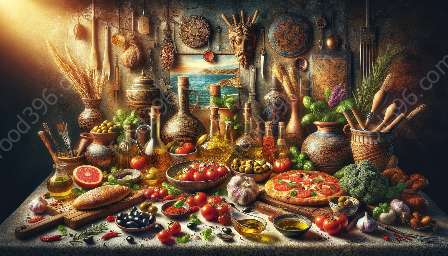French cuisine is renowned worldwide for its rich history, culinary traditions, and cultural influence. To truly understand the depth and diversity of French cuisine, it's essential to explore its historical roots, from its earliest origins to its modern-day evolution. As we delve into the history of French cuisine, we will also uncover its connections to Mediterranean cuisine and the broader history of culinary traditions.
The Origins of French Cuisine
The history of French cuisine can be traced back to ancient Gaul, a region encompassing modern-day France that was inhabited by Celtic tribes. The Gauls were known for their agricultural practices and their use of local ingredients, which laid the foundation for the development of traditional French dishes.
During the Roman Empire's occupation of Gaul, Roman culinary influences permeated the region, introducing new ingredients such as olives, grapes, and wheat, and cooking techniques that would significantly impact the evolution of French cuisine.
The Middle Ages and the Influence of Mediterranean Cuisine
During the Middle Ages, the concept of courtly love and chivalry emerged, transforming the culinary landscape. Noble households in France were centers of lavish feasts and extravagant banquets, where Mediterranean ingredients and cooking methods were embraced.
The Crusades also played a significant role in the exchange of culinary knowledge between France and the Mediterranean region. Spices, herbs, and exotic ingredients from the Mediterranean became sought-after commodities in French kitchens, leading to the fusion of flavors and culinary traditions.
The Renaissance and the Birth of Haute Cuisine
The Renaissance period marked a culinary revolution in France, as the emergence of humanism and the spirit of inquiry led to a renewed interest in gastronomy and culinary arts. The influence of Mediterranean cuisine continued to shape French culinary practices, with a focus on refinement and sophistication in cooking and presentation.
During this era, the concept of

